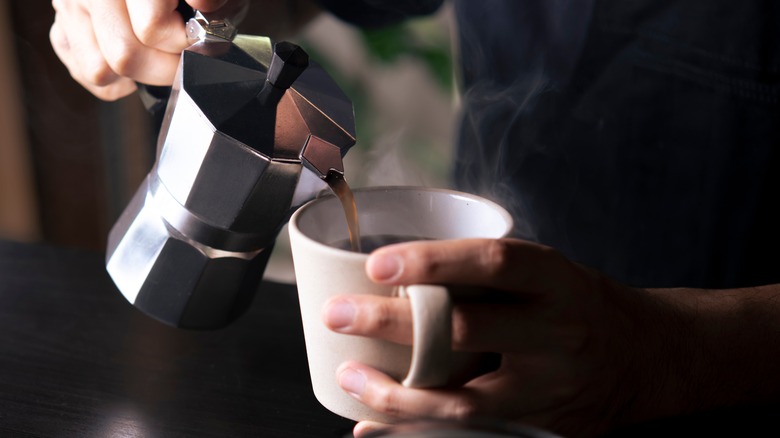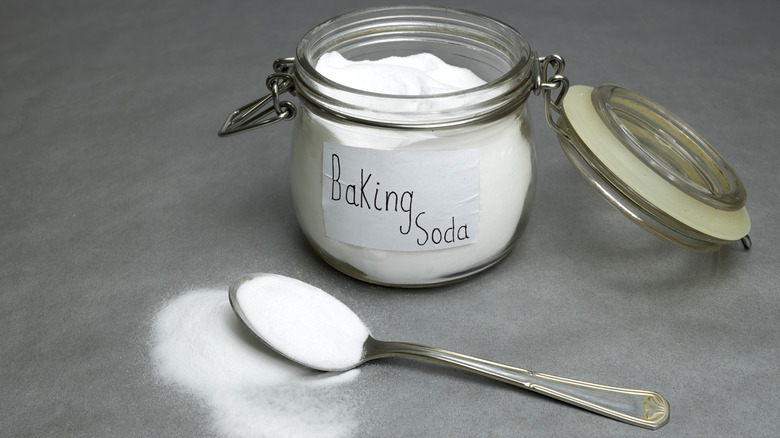The Simple Addition To Minimize The Acidity Of Your Coffee
Many of us can't imagine starting our day without a steaming hot cup of joe. The National Coffee Association USA claims that 66% of Americans drink at least a cup of coffee every day. Folks who suffer from acid reflux might be unable to partake in this morning ritual due to coffee's high acidity.
Healthline says that coffee's acidity can aggravate several digestive disorders, such as Irritable Bowel Syndrome, gastric ulcers, and acid reflux. Coffee hasn't been shown to cause any of these problems, but that acidity does make their effects worse for many.
Just because coffee can stress these conditions doesn't mean it needs to be avoided entirely, though. Some low-acid options are on the market, but other factors like the roast and brew method can also affect coffee's acidity level. There's also a simple additive that you might already have in your pantry that can also help out.
Why is coffee so acidic?
According to Third Wave Coffee Roasters, coffee's acidity is linked to its caffeine content and other natural acids released during the roasting and brewing processes. You can control coffee's acid content by selecting specific roasts and brewing methods. Little Coffee Place says that even the altitude at which the coffee is grown can influence its acidity. Coffee grown at a lower altitude tends to have a lower acidity than those grown far above sea level.
Verena Street Coffee points out that darker roast coffees will also have lower levels of acidity as well. Healthline reports that studies have shown longer roasting periods at higher temperatures can reduce the levels of chlorogenic acid in coffee beans.
Verena Street Coffee adds that making cold brew coffee is another excellent way to reduce acidity. Cold water has been shown to release fewer of coffee's natural acids, so this method can help save a sensitive stomach. That means you finally have an excuse to be that person drinking cold brew in the middle of winter.
If you've tried all these before and are still unsuccessful, you can also try putting something extra in your coffee that might help.
Baking soda reduces coffee's acidity
Like adding milk, sugar, or even salt, which is used to reduce the bitter flavors typically found in coffee, baking soda can also reduce coffee's acidity (via Kitchn).
The U.S. Geological Survey says that a substance's acidity is measured on a pH scale from 1 to 14. Anything less than seven is considered an acid, and anything higher is considered a base. Baking soda is a base with a pH of roughly 9.5.
Verena Street Coffee says that black coffee usually lands in around a five, which means it's slightly acidic. Those who can't take acidic coffee may have found that adding milk has helped them in the past. That's because milk — although still an acid — is less acidic with a pH of six.
Kitchn says that adding a half-teaspoon of baking soda to coffee grounds before brewing will help lower the coffee's acidity without affecting the flavor. This is because baking soda is a fairly neutrally flavored base substance.
So, if you can't handle coffee's acidity or are tired of hunting down low-acidity coffee, keep some baking soda on hand instead, and take back your morning ritual.


